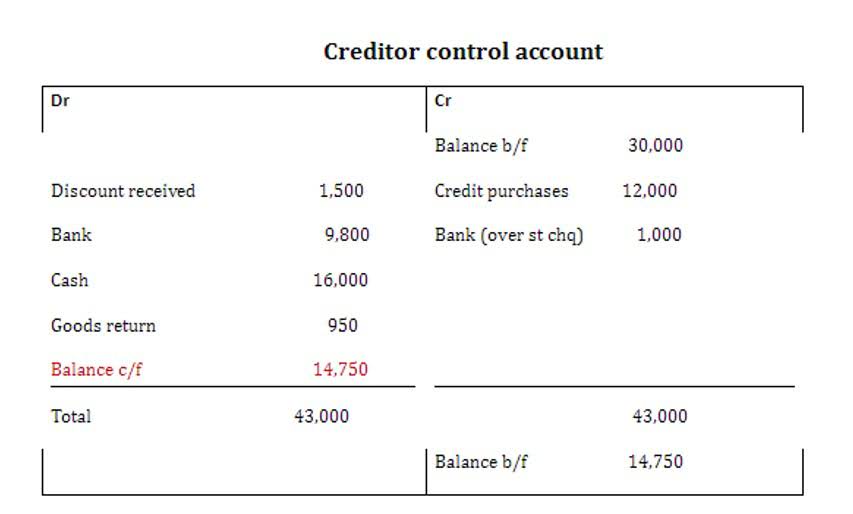
A tax exempt trust exclusively for the purpose of paying qualified higher education costs of the trusts designated beneficiary. Rate of return that a business could earn if it chose another investment with equivalent risk. The excess of REVENUES over all variable costs related to a particular sales volume.
- Replacing an old DEBT with a new one, often in order to lower the INTEREST costs of the issuer.
- Amount, net or CONTRA ACCOUNT balances, that an ASSET or LIABILITY shows on the BALANCE SHEET of a company.
- Business-owned life insurance contract typically on the lives of principal officers that normally provides for guaranteed death benefits to the company and the accumulation of a cash surrender value.
- However, since this field is so specialized, the aspiring Accountant doesn’t have to land a job with a professional music industry accounting firm right out of school to get the experience required.
- Signed, written order by which one party (drawer) instructs another party (drawee) to pay a specified sum to a third party (payee).
- Ordinarily, “cost” is the purchase price of the asset and “market” refers to its current replacement cost.
- A DEBT that falls due more than one year in the future or beyond the normal OPERATING CYCLE, or that is to be paid out of noncurrent assets.
Franchise Tax

A taxpayer, whether business or individual, must file a request on a form. It must also be filed within the timeframe allotted or the refund may be lost. An individual can claim a refund back to whatever year it was due but it will only be paid three years back or less. Expenditure identified with goods or services acquired and measured by the amount of cash paid or the market value of other property, CAPITAL STOCK, or services surrendered. Expenditures that are written off during two or more accounting periods. Portion of the total GAIN recognized on the sale or exchange of a noninventory asset which is not taxed as ORDINARY INCOME.
Investment Banker

One of two classes of income (the other being CAPITAL GAINS) taxed under the INTERNAL REVENUE CODE. Historically, ordinary income is taxed at a higher rate than capital gains. Period of time between the acquisition of goods and services involved in the manufacturing process and the final cash realization resulting from sales and subsequent collections.
Perpetual Inventory
ZERO-COUPON BOND convertible into the COMMON STOCKof the issuing COMPANY when the stock reaches a predetermined price. BOND on which the holder receives only one payment at maturity which includes both PRINCIPAL and INTERESTfrom issuance to maturity. Rate of spending, or turnover of money- in other words, how many times a dollar is spent in a given period of time. Total costs that change in direct proportion to changes in productive output or any other measure of volume. Shares of a corporation’s stock authorized in its charter but not issued. Unexpensed portion of the amount by which the price paid for a SECURITY exceeded its PAR VALUE.
Liquid Assets
If one taxpayer itemizes then the other is required to by law even if the married filing separate taxpayer is unknowing of what is included on the spouses separate return. A reason for this might be the prevention of pooling and duplication of deductions. An internal reorganization of a corporation including a rearrangement of the capital structure by changing the kind of stock or the number of shares outstanding or issuing stock instead of bonds. It is distinguished from most other types of reorganization because it involves only one corporation and is usually accomplished by the surrender by shareholders of their securities for other stock or securities of a different type. Investor-owned TRUST which invests in real estate and, instead of paying income tax on its income, reports to each of its owners his or her pro rata share of its income for inclusion on their income tax returns. This unique trust arrangement is specifically provided for in the INTERNAL REVENUE CODE.
- Some of the more common filings that publicly owned companies must submit are the FORM 10-K, FORM 10-Q and FORM 8-K.
- A qualified REMIC is generally taxed like a partnership, unless it takes contributions after its start up day or engages in a prohibited transaction.
- Form of doing business pursuant to a charter granted by a state or federal government.
- Amount, expressed as a percentage of total investment, that shareholders pay for MUTUAL FUND operating expenses and management fees.
- Corporations typically are characterized by the issuance of freely transferable CAPITAL STOCK, perpetual life, centralized MANAGEMENT, and limitation of owners’ LIABILITY to the amount they INVEST in the business.
- Financial instruments whose value varies with the value of an underlying asset (such as a stock, BOND, commodity or currency) or index such as interest rates.
Standard rate used to calculate the OVERHEAD cost of a given activity. The act or an instance of purchasing essential products or services from another COMPANY. An amount of something produced, especially during a given period of music business accountant time. Agreement, usually a written document, that sets out the rules by which a LIMITED LIABILITY COMPANY (LLC) is to be operated. It is the LLC equivalent of corporate BYLAWS or a PARTNERSHIP agreement.

The transferee is only liable to the extent of the value of the property received from the transferor. Thus, transferee liability merely provides a means for the IRS to recover any assets the transferor-taxpayer attempts to transfer to avoid paying taxes. Stock rights are rights issued to stockholders of a CORPORATION that entitle them to purchase new shares of stock in the corporation for a stated price that is often substantially less than the FAIR MARKET VALUE of the stock. These rights may be exercised by paying the stated price, may be sold, or may be allowed to expire or lapse. I) Terms might involve option to be issued with price to be determined based upon the lowest price as of the issue date or for the next 30 days after the issuance. Grant date does not occur until the conclusion of the 30 day periodwhen the price is known.

